The new buzzword in health writing is ‘longevity’. Maybe it’s because weight-loss drugs have made slimness less elusive; or maybe it’s because we’re living longer, and are now focused on how we can make those extra years as healthy and enjoyable as possible.
Whatever is responsible, a recent survey found Brits are paying for as many as 18 supplements a day to try to boost their mental and physical wellbeing.
In truth, a balanced diet provides the vast majority of what your body needs to work as efficiently as possible.
A large-scale study recently found shifting from a poor diet to one rich in ‘longevity-associated foods’ can add up to 10.8 years to your life.

Kyle Crowley, a nutritionist and chief product officer at Protein Works

A balanced diet provides most of what your body needs to work efficiently (file image)
But what are ‘longevity-associated foods’, and how can we be sure we’re getting enough of them? We spoke to Kyle Crowley, a nutritionist and chief product officer at Protein Works, to ask for the top five foods he’d recommend for a longer and healthier life. Keep reading for some wholesome (and delicious) foods you should be adding to your weekly meal plan.
Oats 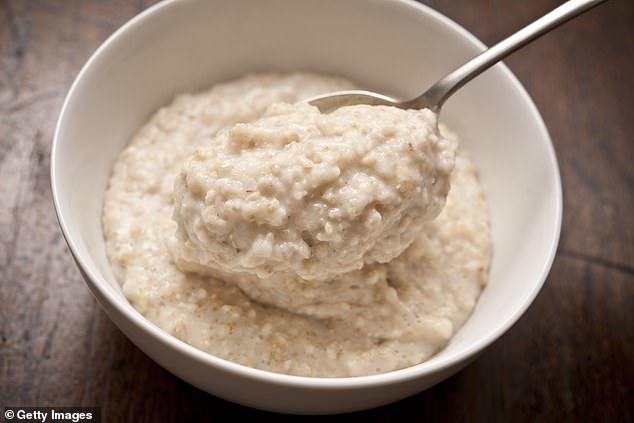
Oats are not only a yummy breakfast choice, but a superfood that helps protect your cardiovascular system, reduce LDL (better known as bad cholesterol) and stabilise your blood sugar levels.
‘Oats are high in soluble fibre,’ Crowley explains, ‘particularly a type of complex sugars called beta-glucans. These have been shown to reduce bad cholesterol and prevent blood sugar surges and crashes – two major factors in the incident of heart disease and type 2 diabetes. These two conditions are leading causes of death globally.’
‘A diet rich in whole grains like oats also helps reduce systemic inflammation,’ Crowley continues, ‘which is a root cause of age-related diseases such as osteoporosis and even neurological conditions.’ He recommends enjoying oats as warm porridge, chilled as overnight oats, or baked into low-sugar granola bars for a mid-morning pick-me-up.
Walnuts 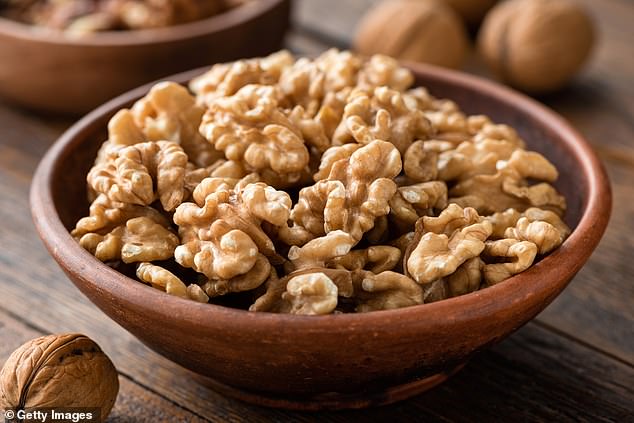
Walnuts are a fantastic snack alternative for those who find themselves munching on salted nut mixes or crisps in the evening. They’re a versatile superfood, as they boost both brain and heart health, which are increasingly important as you age.
‘Walnuts are one of the few nuts that provide a significant amount of ALA, a plant-based omega-3 fatty acid,’ Crowley explains. ‘Omega-3s help reduce inflammation and protect against cognitive decline, which is crucial as we age.’
‘They’re also rich in antioxidants and polyphenols, two compounds that support healthy blood vessels and mitochondrial function. These are both critical for ageing cells to remain strong and well-functioning.’
In a longevity study, walnuts showed one of the strongest inverse correlations with early mortality, especially when considering deaths due to cardiovascular or neurological disease. Enjoy them on their own as a snack, sprinkle them over a salad to add crunch, or enjoy with Greek yoghurt for a brain-boosting breakfast.
Broccoli 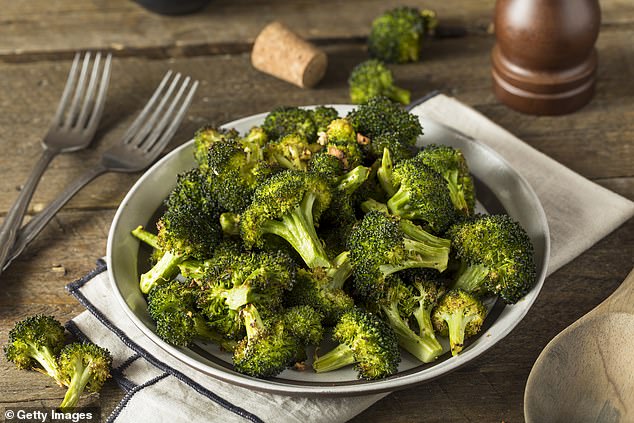
We all remember our parents telling us (or desperately pleading with us) to eat our greens as a kid. Turns out, they were right. Broccoli is a fantastic vegetable for detoxing your cells and boosting your immune system – so it really did help you grow big and strong!
‘Broccoli is part of the cruciferous family and rich in sulforaphane,’ Crowley says. ‘That’s a phytochemical that helps the body activate detoxification enzymes to clear out your cells, and may switch on genes related to longevity and disease resistance.’
Thanks to the powerful antioxidant sulforaphane and rich supply of vitamin C, broccoli aids the immune system in combating infections. Its high fibre content also promotes a healthy gut microbiome, which we now understand is absolutely essential for balance and effectiveness in the immune function.
‘The vegetable also aids the body in removing toxins and pollutants by stimulating the activity of detoxification enzymes, so is a great addition for those living in city environments.’ Crowley’s advice? Lightly steam or roast it rather than blasting it with heat, as this helps preserve as much of its health-boosting sulforaphane as possible.
Blueberries 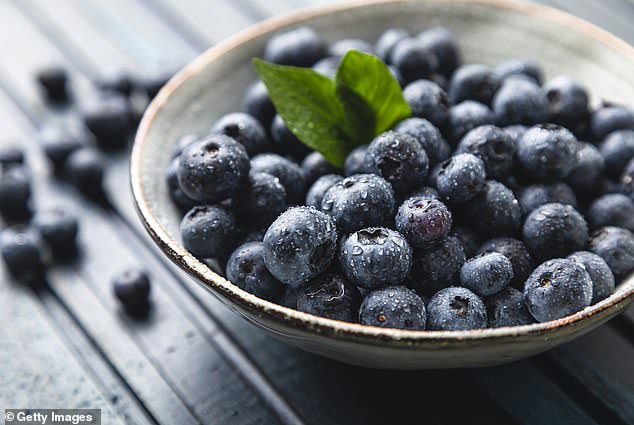
It’s well-known a fruit-heavy diet is linked to a longer, healthier life, and blueberries are a particular must-eat due to their positive impact on blood pressure and brain function.
‘Blueberries are rich in anthocyanins, which give them their deep colour and act as powerful antioxidants,’ Crowley advises. ‘These compounds have been shown to protect against oxidative stress, a process which accelerates ageing and can lead to chronic diseases.’
‘Blueberries also improve endothelial function, which means better blood flow and lower blood pressure. They also reduce risk of dementia by preserving brain cells and communication pathways.’ Crowley suggests enjoying half a cup daily, fresh or frozen, blended into a smoothie or paired with Greek yoghurt.
Salmon 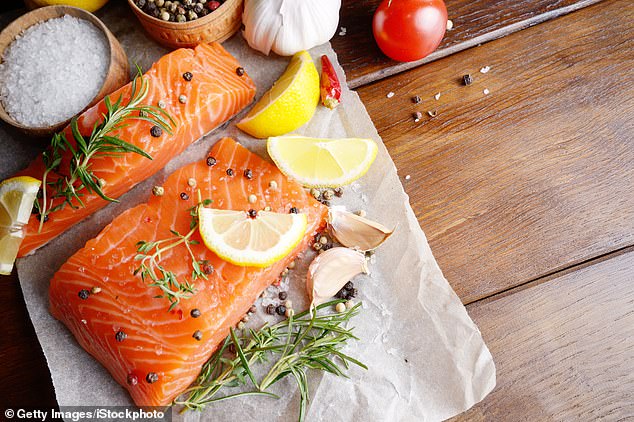
Salmon is not only a delicious brunch choice, but a fantastic snack for improving heart health, controlling inflammation and maintaining muscles.
‘Salmon is an excellent source of long-chain omega-3s,’ Crowley says, ‘specifically EPA and DHA, which have been shown to lower triglycerides, reduce plaque build-up in arteries, and decrease systemic inflammation.’
‘Omega-3s also play a key role in preserving muscle mass and cognitive health, both of which naturally decline with age and are crucial for maintaining independence in later life. And studies show fish intake is linked with significantly lower risk of death from heart disease, stroke and Alzheimer’s, especially when it replaces red or processed meat.’